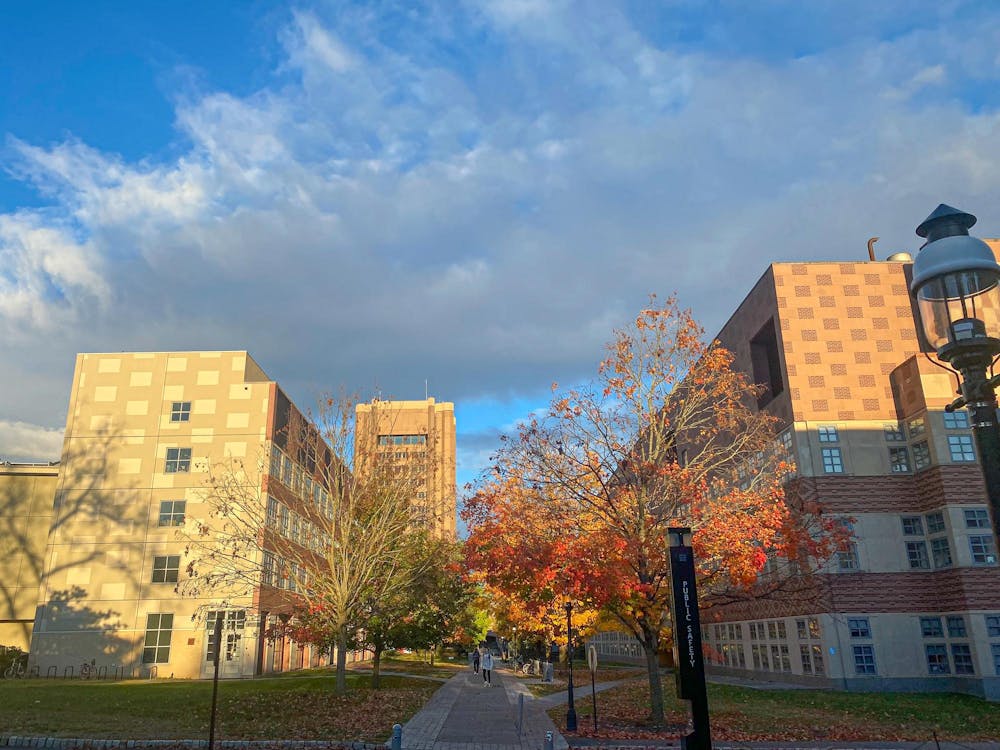“There’s real hope that by the time I finish doing research and teaching at Princeton, we won’t worry about cancer as much. I think we truly can get there one day,” Yibin Kang told The Daily Princetonian.
Kang is a professor in the Department of Molecular Biology and co-founder of the Princeton branch of the Ludwig Institute for Cancer Research. His lab researches the molecular mechanisms of metastasis, the spread of cancer cells from a localized site to other parts of the body, in addition to understanding how and when the cancer cell acquired that ability.
“If [the cancer] is localized in the breast, you do surgery and it’s gone and you don’t worry about it. But unfortunately, about 20 to 30 percent of patients develop metastasis, which is called stage four cancer, and it’s much harder to treat and cure,” Kang said.
Kang’s lab is predominantly focused on breast cancer, one of the most frequent types of cancer in the United States, with around 40,000 women dying from breast cancer and 200,000 diagnosed each year.
“It is a very prevalent disease, and I think we are getting better in treatments, but still, a lot of people die,” Kang explained. “So that’s why we want to use that as a major focus of the lab.”
However, he noted that the lab’s focus often implicated different parts of the body.
“Oftentimes the mechanism is not limited to breast cancer, so whenever appropriate, we have also validated its importance in prostate cancer, in lung cancer, in colon cancer, and also liver cancer. So much of the cancer research is no longer limited to one organ site,” he added.
One project the lab has been working on for many years is looking at the genomic DNA of patients with breast cancer who are more likely to develop relapse and have metastasis. A 2021 study, for instance, worked with a gene called metadherin (MTDH) which caused tumors to metastasize and also become resistant to chemotherapy. The lab also found that MTDH can interact with another protein, called SND1, which forms a complex that essentially makes the tumor invisible to the immune system.

The lab identified small molecule compounds that disrupt the complex, seeming to have therapeutic effects at least in mice. The project is still ongoing, but Kang notes that the lab is “excited because it’s part of the efforts of how metabolism alters cancer … to their benefit.”
“There’s so many exciting directions that we’re going,” Kang said. “But the goal is to find important drivers of cancer and then think about ways to disrupt them and treat them with drugs.”
Kang has been at Princeton for 21 years and is driven by the spirit of discovery, scientific curiosity, and drive to make an impact.
“You try to break down a complex problem into solvable problems, by creating models that could mimic the disease in a more controlled manner, and so you can break it down to study that step by step and figure out components of the issues and of the problem and then try to solve it,” Kang said.

Kang’s work also has a social aspect — interacting with patients, cancer survivors, and their families through participating in advocacy events such as the Susan G. Komen Race for the Cure, charity events, and fundraising. The individuals Kang interacts with “are all eager to know how [his] research will change their life, so there’s a strong motivation to see how [his] discovery can one day make a difference in the life of the patient.”
Kang has taught the course MOL 423: Molecular Basis of Cancer for over 20 years, but noted that the teaching material has to be updated every year because it evolves so quickly.
“It’s really breathtaking in terms of the events we have made, not only the knowledge we gain, but how much new insights we gain,” Kang said. “There are brand new chapters created because there has been a paradigm shift in discoveries and medicine-changing practices that have been introduced every year. And so that’s the exciting part of our cancer research; it’s evolving very rapidly, maybe not as fast as the patients hope, but really at a very fast pace.”
Aanya Kasera is an assistant Podcast editor who also writes about research for the ‘Prince.’
Please send any corrections to corrections[at]dailyprincetonian.com.








